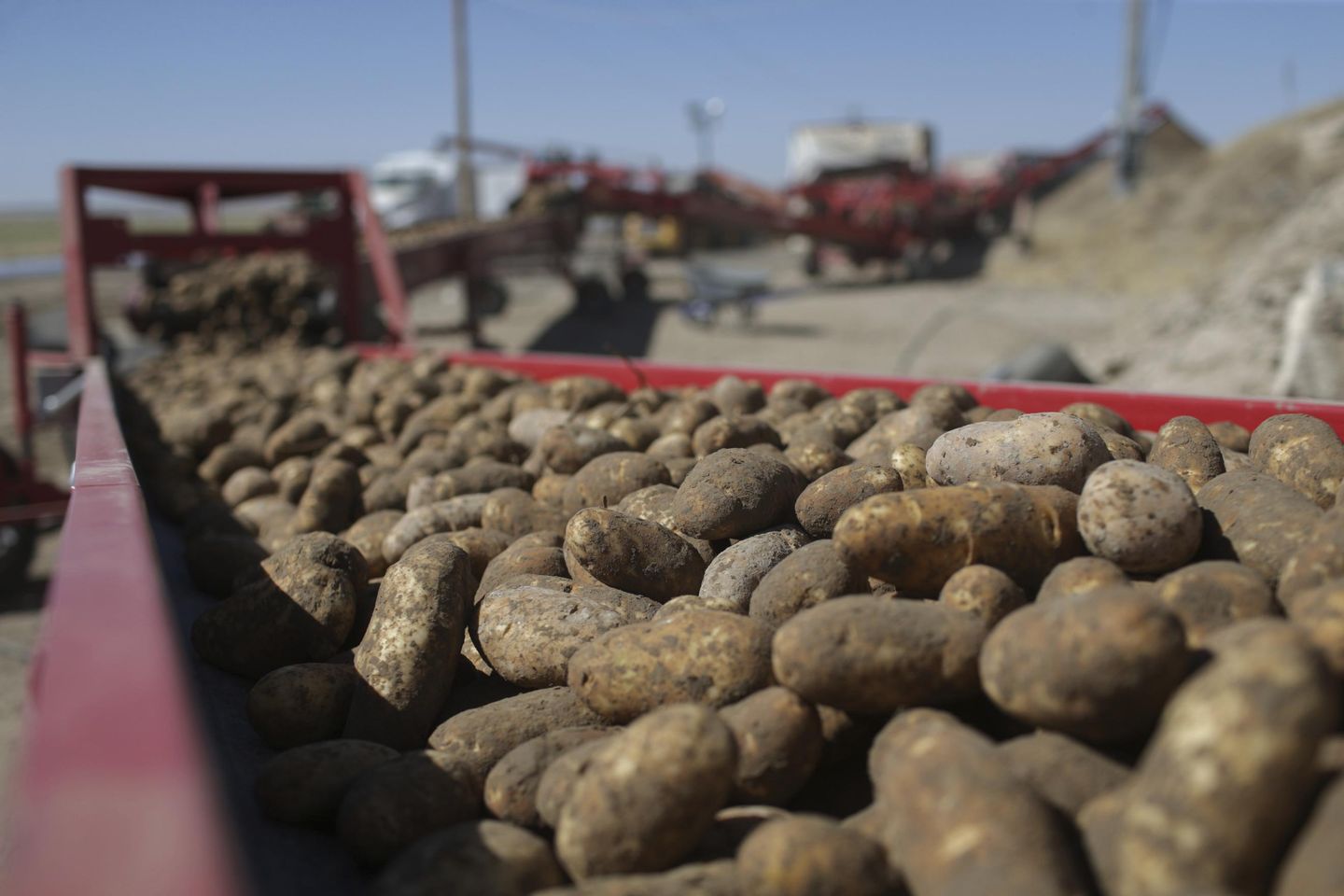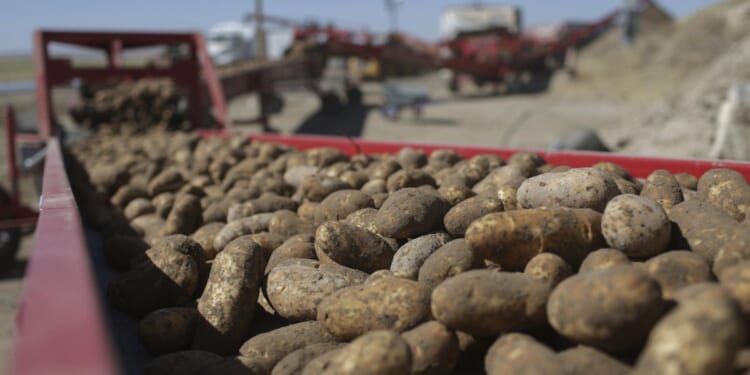
A bipartisan group of senators delivered a stern warning to Uncle Sam this week: Keep your paws off our french fries.
The lawmakers, led by Sen. Susan Collins, a Republican, and Sen. Michael Bennet, a Democrat, said they’d gotten a whiff of an effort to strike potatoes from the government’s dietary list of vegetables and to reclassify them as a grain.
The idea is stomach-churning, the senators said.
“If potatoes were to be reclassified, consumers would miss out on vital nutrients,” they wrote in a letter. “In addition, any change to potatoes’ current classification … would immediately confuse consumers, retailers, restaurant operators, growers, and the entire supply chain.”
Their letter, joined by 12 other senators, both Democrat and Republican, urged the secretaries of the Agriculture and Health and Human Services departments to step in and shut down the effort.
Their target is the Dietary Guidelines Advisory Committee, run by the two departments, which is working on the 2025 iteration of the guidelines.
Fears of a change were sparked when researchers working for the committee took a shot at spuds in a report last year, saying they’ve seen worrying evidence that “dietary patterns with French fries and potatoes were associated with a great colon and rectal cancer risk.”
The researchers also said there was “limited evidence” that fried potatoes led to higher body mass in teens.
But the Agriculture Department, in a statement to The Washington Times on Thursday, suggested the lawmakers have no reason for worry.
“The 2025 Dietary Guidelines Advisory Committee is not considering a change to the classification of potatoes,” the department said. “It is not within the Committee’s purview to make such a change.”
If the feds were to make a change it could ripple through the food industry.
Federal food plans such as the national school breakfast and school lunch programs rely on the dietary guidelines to plan balanced menus.
If potatoes were to be demoted, the menus would likely change — and potato purchases could plunge.
The senators said potatoes bring so much to the plate. A medium baked potato has 15% of the recommended daily intake of dietary fiber, 27% of vitamin B6 and 28% of vitamin C.
“In fact, potatoes have more potassium than bananas, a food that is commonly associated with being high in potassium,” the lawmakers wrote.
They also said it would be tough for schools to adapt to changes because they’d struggle to find another cheap vegetable to take the place of potatoes.
The potato’s adversaries say the problem is that people tend to overeat potatoes.
Harvard University’s Healthy Eating Plate initiative refuses to classify them as a vegetable, fretting over what the potato’s starch does to blood sugar and insulin levels.
“For example, a cup of potatoes has a similar effect on blood sugar as a can of cola or a handful of jelly beans,” the school’s T.H. Chan School of Public Health wrote in a piece titled “The Problem with Potatoes.” “The roller-coaster-like effect of a high dietary glycemic load can result in people feeling hungry again soon after eating, which may then lead to overeating.”
The school suggested vitamin C and potassium can better be gotten from broccoli or white beans. And for those craving mashed potatoes, the school urged mashed cauliflower, wetted with a little bit of skim milk and olive oil and flavored with parmesan cheese.
The National Potato Council, in testimony to the government advisory committee, said potatoes are “vastly different” than grains, and wrongly reclassifying them could mean Americans end up eating fewer vegetables overall.
“We ask the committee to avoid this chaotic outcome and continue to acknowledge the fact that potatoes are a vegetable,” council CEO Kam Quarles told the committee.
The U.S. Grains Council is also reportedly against the reclassification.
Potatoes are by far the most popular vegetable in Americans’ diet, with tomatoes a distant second.
While potatoes are going under the microscope, tomatoes may be untouchable.
The Supreme Court ruled in 1883 that despite their proper botanical classification as seed-bearing fruit, they are colloquially and correctly labeled as vegetables, at least for purposes of the Tariff Act of 1883.












